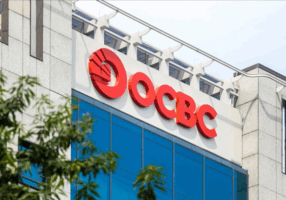About Us
The Sustainable and Green Finance Institute (SGFIN) is a research institute established by the National University of Singapore (NUS). SGFIN provides deep research capabilities in sustainable and green finance with the focal point on Asia and contributes thought leadership to shape sustainability outcomes in policymaking across the financial sector and the economy at large.
Supported by exceptional domain experts across NUS, SGFIN equips businesses with critical knowledge across disciplines to better quantify the environmental and social impacts of their business developments, operations, products, and services. SGFIN also provides education, training, and toolkits to integrate sustainability dynamics into their business strategies and investment decisions. In essence, SGFIN facilitates companies and institutions in embedding sustainability as a core pillar in their business decisions.
Recent News
Beyond Labels: Why Carbon Risk Disclosure Must Reflect Economic Reality
Recent developments involving OCBC highlight a critical issue in sustainable finance: the difference between formal sector classification and real economic exposure to transition risk. Prof Johan Sulaeman, Director of the Sustainable and Green Finance Institute underscores that climate disclosure should capture where carbon risk truly resides within portfolios. Transition risk is not confined to fossil …
Beyond Labels: Why Carbon Risk Disclosure Must Reflect Economic Reality Read More »
Read MoreSinglife-SGFIN Sustainable Future Index 2026: Gen Z Leads in Sustainability Awareness, Older Singaporeans Lead in Action
The Singlife–SGFIN Sustainable Future Index 2026, jointly developed by Singlife and Sustainable and Green Finance Institute (SGFIN), examines the intrinsic drivers shaping sustainability behaviours among Singaporeans. The SGFIN team comprise of Deputy Director Prof Weina Zhang, Michael Aleander, Bhairavee Deepak Wagh, and Asda J Pandiangan, have developed the survey questions based on behavioural framework encompassing awareness, knowledge, and ownership, and compute …
Read MoreCounting Carbon in MICE
Associate Professor Zhang Weina (Department of Finance) explained how large-scale MICE events generate carbon emissions across areas such as travel, catering and booth construction. Using SGFIN’s carbon calculator, she demonstrated how emissions can accumulate, underscoring the importance of measuring carbon impact as a first step towards more responsible event planning. Similar posts were shared on …
Counting Carbon in MICE Read More »
Read MoreScaling SME Sustainability Through Non-Financial Innovation
As part of its mission to advance sustainable finance and support SME transition around the world, SGFIN contributed a case study to the “SME Best Practice Guide” published by International Finance Corporation (IFC) SME Finance Forum to share the insights on how non-financial services can unlock sustainable finance for SMEs. SGFIN’s Deputy Director, Associate Professor …
Scaling SME Sustainability Through Non-Financial Innovation Read More »
Read MoreDigital Convenience, Real Carbon Costs
Associate Professor Zhang Weina (Department of Finance) highlighted the three platforms with the highest carbon footprints are Netflix, Zoom and TikTok, due to high-resolution video streaming and cloud data storage. She also noted that activities such as conferences, workshops and seminars can generate substantial carbon emissions. See similar posts on Facebook and TikTok. NUS Business …
Digital Convenience, Real Carbon Costs Read More »
Read MoreSustainable Aviation Fuel Levy Explained
Associate Professor Zhang Weina, Deputy Director of SGFIN commented that the sustainable aviation fuel (SAF) levy on outbound cargo will likely be passed on to end customers. This may negatively impact the price competitiveness of Singapore’s exports. However, as transit and inbound cargo will be exempt from this levy, the impact on companies using Singapore as a …
Sustainable Aviation Fuel Levy Explained Read More »
Read MoreFinance as a Catalyst for a Sustainable Future
In a compelling episode of the AIB Podcast, Professor Johan Sulaeman, Director of SGFIN, shared how green finance is reshaping the future of capital allocation. Moving beyond traditional profit-driven models, green finance is emerging as a strategic lever to drive long-term environmental and social value. Prof Johan highlighted the urgent need for clearer impact metrics, …
Finance as a Catalyst for a Sustainable Future Read More »
Read MoreShaping Asia’s Net-Zero Future
With the closure of the Net-Zero Banking Alliance, Prof Johan Sulaeman, Director of SGFIN, highlighted a pivotal moment for Asian banks and regulators. He emphasized that transparency, consistent climate disclosures, and stronger accountability are essential to maintain credible net-zero commitments. While the absence of a global oversight body creates challenges, it also presents a rare …
Shaping Asia’s Net-Zero Future Read More »
Read MoreSingapore’s Multibillion-Dollar Events Industry has a Hidden Cost
For too long, the environmental cost of major events have been discounted – invisible behind ticket sales and headline attendance. In the Straits Times, Associate Professor Zhang Weina and Yannis Yuan propose that Singapore’s Meetings, Incentives, Conferences, and Exhibitions (MICE) industry must measure and disclose its true carbon footprint to stay competitive on the global …
Singapore’s Multibillion-Dollar Events Industry has a Hidden Cost Read More »
Read MoreClimate Resilience Starts with Finance
Finance sits at the centre of climate resilience – a key insight from Professor Johan Sulaeman, Director of SGFIN, in his keynote address at the International Corporate Governance Conference 2025. Drawing on SGFIN’s research, he illustrated how financial systems connect three critical domains: local adaptation, carbon markets, and global capital markets. By expanding farmer financing, …
Climate Resilience Starts with Finance Read More »
Read More



















